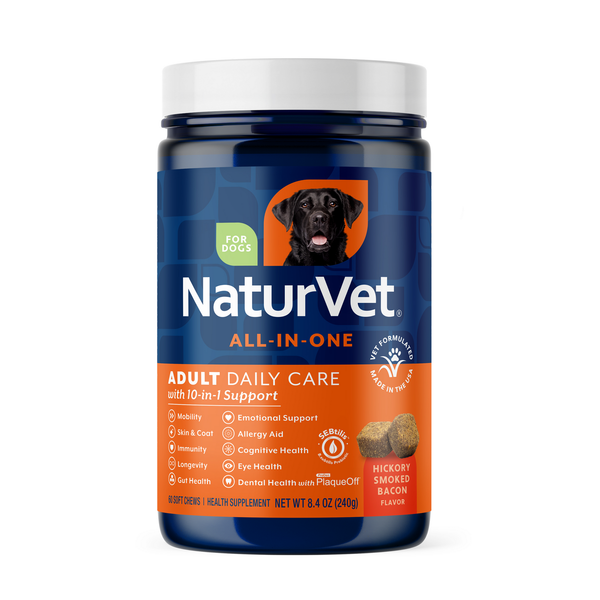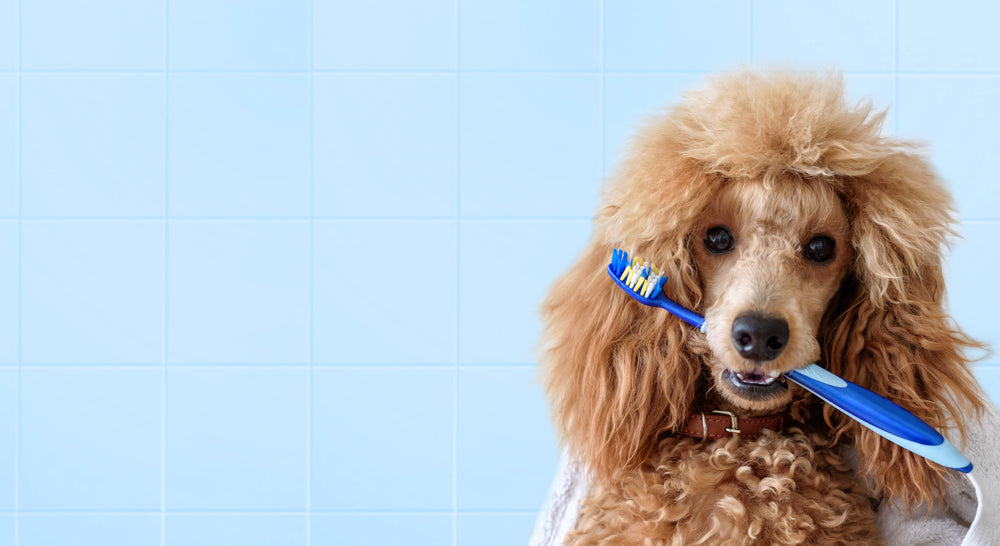Ultimate Guide: Keeping Your Dog’s Gums Healthy
A healthy dog is a happy dog, and that’s why it’s important to make sure your pup’s gums are in top condition. Your dog’s gums are a window into their overall health, so making sure they stay healthy is essential for your pup’s well-being.
In this blog post, we’ll be discussing the importance of keeping your dog’s gums in great shape, as well as providing some tips on how to do exactly that. By following along, you’ll leave your dog with a healthier smile and happier state of being. Let’s dive in!
Why Do Healthy Gums Matter For Dogs?
Keeping your dog’s gums in good shape is important because they expose a window into the overall health of your animal. Because gums are moist, they’re also a major route by which bacteria and viruses enter the body. Read on to find out how you can make sure that your dog gets the most out of their oral health care routine!
Keeping Dog Gums Healthy

Dog gum health is an important part of your dog's overall health and well-being. Proper brushing and flossing of your dog's teeth can help prevent plaque build-up, which can lead to bad breath, infection, and even tooth loss.
Regular brushing and flossing can also help keep your dog's gums healthy and reduce the risk of periodontal disease. It is important to brush your dog's teeth at least three times a week with a soft-bristled toothbrush designed specifically for dogs.
Additionally, you should use dental floss or an interdental brush to clean between the teeth where plaque tends to build up quickly. Just by doing this, you’re putting your dog at the front of the pack as far as dental hygiene is concerned.
How To Brush Your Dog’s Teeth:

The American Kennel Club (AKC) recommends the following for brushing your dog's teeth:
- Choose a quiet time for brushing your dog's teeth, with minimal distractions or other pets around.
- Purchase a toothbrush specifically designed for dogs from a pet store or online retailer. It should have a curved handle that allows you to easily access the back teeth. Only use toothpaste made for dogs, as human toothpaste can contain harmful ingredients.
- Find a well-lit and comfortable location for brushing your dog's teeth.
- Before using the toothbrush, gently touch your dog's teeth and gums to acclimate them to the sensation. If your dog has had previous mouth-handling training, this may be easier than you expect!
- Introduce the toothpaste to your dog by letting them lick it from your finger first.
- Add the toothpaste to the toothbrush and begin brushing the front, side, and back teeth on the top and bottom of your dog's mouth. Praise and reward your dog throughout the process.
- Gradually work towards brushing both the inside and outside of the teeth, focusing on the outsides first before moving to the insides.
- Continue to praise and reward your dog, as teeth brushing can be an unfamiliar and uncomfortable experience for them. You can use treats to incentivize your dog during the learning process, but eventually aim to phase them out.
Dog Dental Appointments
Regular dental appointments are necessary to ensure that your dog's teeth and gums stay healthy. Dog dental appointments can help with disease, which can lead to pain and tooth loss if left untreated.
During a dental appointment, the veterinarian will examine your dog's teeth and gums. They may also recommend preventive treatments such as brushing or professional cleaning to keep your dog's teeth in good condition. Scheduling regular dental appointments are essential for long-term health and well-being.
What Are The Signs of Poor Gum Health?
Signs of poor gum health include redness, swelling, and bleeding. Additionally, bad breath could be an indicator of poor gum health. If any of these signs are present in your pet's mouth, it’s important to take them to the vet for a checkup as soon as possible. All of these symptoms can lead to your dog developing gum disease.
Gum Disease In Dogs

Dog gum disease is a common health issue that affects the gums, teeth, and oral health of dogs. It is caused by bacteria in the mouth that form plaque and tartar on the teeth. If left untreated, it can lead to infection in the gums and cause pain, inflammation, and eventually tooth loss.
Dog owners should be aware of the signs of gum disease such as bad breath, red or swollen gums, bleeding gums when brushing or chewing on food, and difficulty eating due to pain or discomfort in the mouth.
Dental Products For Dogs
There are a variety of dental products available to help you keep your pup's teeth clean and healthy. Here are just a few that are very common to use:
- Dog dental sprays - A great way to keep your pet's teeth and gums healthy. They are easy to use and can help prevent plaque buildup, reduce bad breath, and fight gum disease. Dog dental sprays can help strengthen tooth enamel, which is very important.
- Dog dental gel - Formulated with ingredients that help reduce plaque and tartar buildup, freshen breath and promote healthy gums. The gel can be applied directly to the dog's teeth and gums using a toothbrush or finger brush. Some dental gels also provide essential vitamins and minerals for your pup.
- Dog dental chews - Dog dental chews come in a variety of shapes, sizes, and flavors that make them appealing to dogs of all ages. Not only do they help with oral health, but they provide mental stimulation for your dog. There are many different types of dental chews available on the market today, so it’s important to do your research before buying some for your pup.
Keeping your dog happy and healthy requires a bit of extra attention sometimes. Take the tips we've provided today to check on your best friend's gum health.























